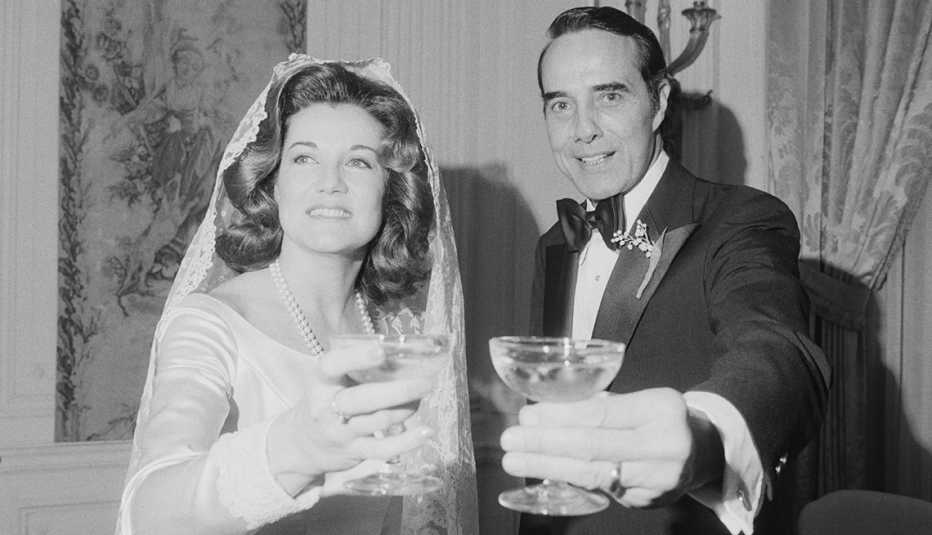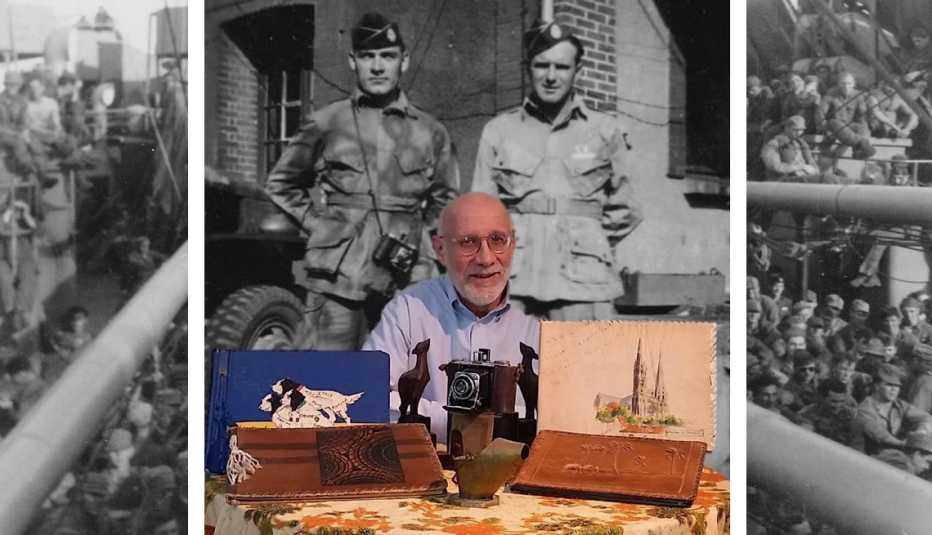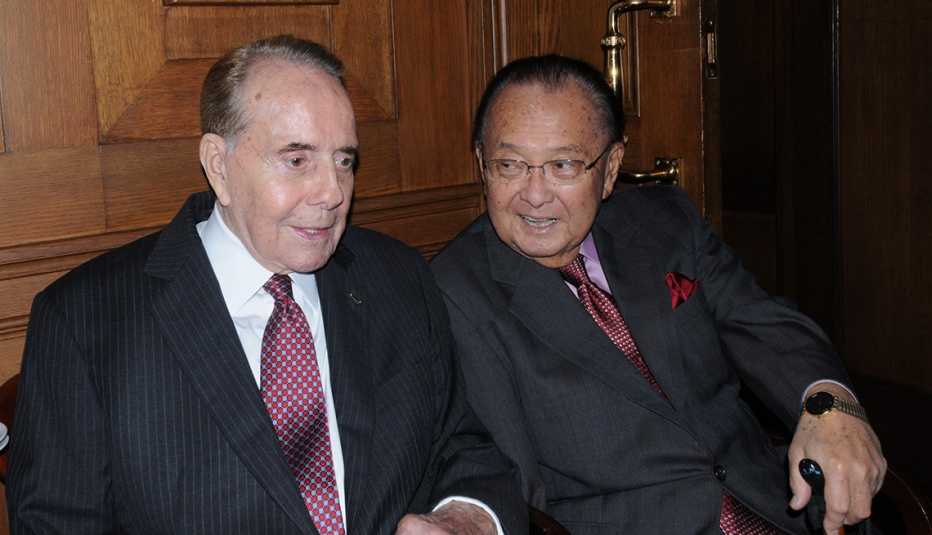AARP Hearing Center
When Bob Dole was a young soldier fighting in World War II, his parents received a telegram that broke their hearts: “THE SECRETARY OF WAR DESIRES TO EXPRESS HIS DEEP REGRET THAT YOUR SON 2 LT DOLE ROBERT J WAS SERIOUSLY WOUNDED IN ITALY 14 APRIL 1945 ...”
“Seriously wounded” did not begin to cover it. His injuries were so grievous that the small-town boy from Russell, Kansas, would be awarded two Purple Hearts and two Bronze Stars. Dole was leading an army platoon ordered to capture a hill when he dragged a radio man into a foxhole and was hit in the right shoulder by a shell fragment, which fractured his spine and neck. He lay face down in bloody dirt, thinking his arms had been blown out of their sockets.
They were still there. But his right arm would forever hang limp and atrophy by two-and-a-half inches. His right hand proved useless, drawing into a claw. And he’d have sensation in only a couple of fingers on his left. He had once been so strong that he’d hauled a Harley-Davidson motorcycle up three flights of stairs at the University of Kansas as a prank. Now he was permanently disabled.
“When you join that group,” Dole told the Washington Post in 1996, “you say, ‘Why me?’ But after you’ve been there awhile, you have to decide what you’re going to do with your life.”
Dole, who died Dec. 5 at age 98, made the choice to serve others. The Republican leader of the U.S. Senate from 1985 to 1996, he ran against incumbent President Bill Clinton in the 1996 presidential election, and was the last World War II veteran chosen to be the presidential nominee of a major party. Born July 22, 1923, he was also the oldest first-time presidential nominee, at age 73 years and one month.
At the news of Dole's death President Joe Biden ordered U.S. flags at the White House, federal buildings and grounds, military posts, naval stations, embassies and consulates to be flown at half-staff until Dec. 9 to honor the former senator. House Speaker Nancy Pelosi also ordered that the flags at the Capitol be lowered.
"Bob was an American statesman like few in our history. A war hero and among the greatest of the Greatest Generation," Biden said in a statement that paid tribute to his bipartisanship and especially his work to get the Americans with Disabilities Act passed.
"A bright light of patriotic good cheer burned all the way from Bob’s teenage combat heroics through his whole career in Washington through the years since," Senate Minority Leader Mitch McConnell, (R-Ky), said in a statement. "It still shone brightly, undimmed, to his last days."
AARP CEO Jo Ann Jenkins said on Twitter that "Sen. Bob Dole's passing marks the loss of another U.S. hero." AARP has worked closely with the Elizabeth Dole Foundation, especially to help provide respite relief to veteran and military families caregivers. Jenkins called Dole "a warrior who loved his country and lived a life of service."
The presidential election defeat hit Dole hard, especially as he also had been the Republican Party’s vice-presidential nominee in the 1976 election, when Jimmy Carter won over Gerald Ford. “I don’t know how many people run for vice president and president and lose both,” cracked the man who often used humor and deadpan delivery to blunt the sharper edges of his life.
“I was thinking on the way down in the elevator: Tomorrow will be the first time in my life I don’t have anything to do,” Dole remarked in his election-night concession speech. But within hours, he was back on TV as a frequent and charming talk show guest, often referring to himself in third person (to the delight of comedians), and musing about life after public office: “Elizabeth’s back at the Red Cross, and I’m walking the dog.”


“Elizabeth” was, of course, his second wife and stepmother to his daughter, Robin, from his first marriage. The couple married in 1975 after a three-year courtship. “Liddy” Dole had her own impressive bona fides, leading the American Red Cross after serving as secretary of transportation under President Ronald Reagan (who awarded her husband the Presidential Citizens Medal in 1989), and secretary of labor for President George H.W. Bush. (She would go on to become a North Carolina U.S. senator.)
In a joint interview in 2019 for NBC’s Today, she recalled that her handsome suitor didn’t ask her out until their third phone conversation.






































































